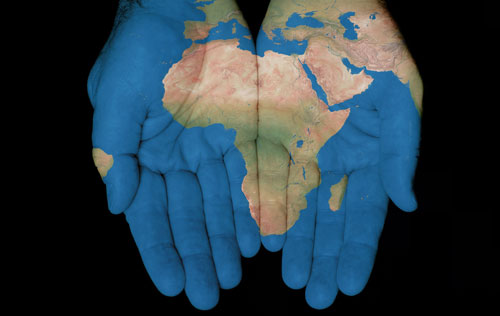Export Procedures: Tanzania
Planning to export goods to Tanzania? Follow these simple guidelines to ensure your goods arrive in time. Finding the right buyers in...

Africa has rapidly gained attention as the next investment hotspot and is being called “the final frontier.” A decade ago, the worldwide boom in investing in emerging markets initially benefited Africa along with other regions, but today many African countries stand out on their own as highly attractive investment opportunities.
The African continent is home to seven of the top 10 fastest-growing economies in the world, and foreign direct investment is rapidly increasing. European and Chinese companies of all sizes recognised the African opportunity early on and have a head start.
As growth slows in more developed markets, geographic diversification is  a logical next step for businesses of
all sizes. Many African markets offer attractive opportunities for mid-sized
companies, and as an early mover, a company stands to secure the most suitable
options as well as the best talent, partnerships, and incentives.
a logical next step for businesses of
all sizes. Many African markets offer attractive opportunities for mid-sized
companies, and as an early mover, a company stands to secure the most suitable
options as well as the best talent, partnerships, and incentives.
While significant risks remain, we challenge those shying away from investing in Africa to consider the following arguments. First, many of the perceived risks are myths. Second, careful analysis will demonstrate that Africa is not a monolith, and an informed investor can find the right fit. Finally, this is not a journey that a mid-sized company has to take alone. Resources and expertise are increasingly available.
As a result, mid-sized companies should not ignore Africa’s transformation into a highly attractive business destination. To capitalise on the burgeoning opportunities, the time to act is now.
Over the past decade the size of the African economy has more than trebled, with West Africa now the fastest growing region on the continent. This year’s African Economic Outlook report, produced by the African Development Bank, the OECD Development Centre and the United Nations Development Programme, indicates that a favourable macro-economic climate across West Africa means that growth is likely to accelerate above seven per cent in the next year, compared with 5.7 per cent for the continent as a whole.
Infrastructure investments in Africa The rate of foreign investment has multiplied ten times over the last decade with massive investments from China, India, Brazil, Malaysia and Turkey in particular. Today the rate of return on foreign investment in Africa is higher than in any other developing region.
Nigeria has become the number-one destination for foreign direct investment, overtaking South Africa for the first time in a decade. High-level delegations from north America have pledged vast sums in the country’s energy sector.
Rising demand for commodities is driving buyers around the world to pay dearly for Africa’s natural riches and to forge new types of partnerships with producers. And Africa is gaining greater access to international capital.
“As was the case at the start of the Asian economic miracle 25 years ago, a relatively small increase in investments in Africa could produce very high productivity improvements. The return on investments in Africa is among the highest in the world. Foreign direct investments are higher than in India,” he says.
He believes it is undeniable that Africa has become increasingly integrated into the world economy. Its partners are more and more diversified, opening up unprecedented new development opportunities.
“Following independence in the 1960s, we believe that African countries today are taking huge steps, with their economic independence becoming less dependent on their traditional partners. Thus China is on its way to overtake the USA as the main partner.”
 Africa’s trade with the rest of the world has
increased 200 per cent since 2000. Trade with Brazil, China, South Korea, India and
Turkey, which used to represent only one per cent, is estimated today at over 30 per
cent. It should reach 50 per cent by the year 2030. Regional trade is also booming
with a drop in customs duties and a reduction in trade restrictions through African
regional integration, says the Ivory Coast president.
Africa’s trade with the rest of the world has
increased 200 per cent since 2000. Trade with Brazil, China, South Korea, India and
Turkey, which used to represent only one per cent, is estimated today at over 30 per
cent. It should reach 50 per cent by the year 2030. Regional trade is also booming
with a drop in customs duties and a reduction in trade restrictions through African
regional integration, says the Ivory Coast president.
“What is more, Africa might benefit from the demographic dividend as Asia did thirty years ago. The population of Africa is about one billion. By 2050, it will reach two billion. Today the average age is 20, as compared with 30 in Asia and 40 in Europe,” says Ouattara.
He believes that the increasing integration of Africa into the world economy could not have taken place without increased political stability, good governance and democracy, changes of power through elections and the gradual strengthening of institutions. Most African countries enjoy elections that the international community has judged “satisfactory”.
“Africa is in the process of succeeding in its economic takeoff, like China 30 years ago and India 20 years ago. However, for this takeoff to be fully achieved, there are some obstacles that Africa must overcome,” says Ouattara.
Today, 40 percent of Africans live in urban areas, a portion close to China’s and continuing to expand. The number of households with discretionary income is projected to rise by 50 percent over the next 10 years, reaching 128 million. By 2030, the continent’s top 18 cities could have combined spending power of $1.3 trillion.
Previous NextPlanning to export goods to Tanzania? Follow these simple guidelines to ensure your goods arrive in time. Finding the right buyers in...
Trade between Dubai and Nigeria has been registering steady growth as buyers from Nigeria flock the wholesaler markets of Dubai...
Abu Dhabi Group expands operations in key African markets. Invests $250 million in Uganda and DR Congo. Investments in Africa from the Middle East...
Download the Africa Business Directory in Excel format and contact buyers, importers and companies in Africa directly from your desktop...
Africa is one of the fastest growing markets for mobile phones in the world. Many importers in Africa are making hay as demand rises...
Planning to export goods to Tanzania? Follow these simple guidelines to ensure your goods arrive in time. Finding the right buyers in...
Trade between Dubai and Nigeria has been registering steady growth as buyers from Nigeria flock the wholesaler markets of Dubai...
Abu Dhabi Group expands operations in key African markets. Invests $250 million in Uganda and DR Congo. Investments in Africa from the Middle East...
Download the Africa Business Directory in Excel format and contact buyers, importers and companies in Africa directly from your desktop...
Africa is one of the fastest growing markets for mobile phones in the world. Many importers in Africa are making hay as demand rises...
Planning to export goods to Tanzania? Follow these simple guidelines to ensure your goods arrive in time. Finding the right buyers in...
Trade between Dubai and Nigeria has been registering steady growth as buyers from Nigeria flock the wholesaler markets of Dubai...
Abu Dhabi Group expands operations in key African markets. Invests $250 million in Uganda and DR Congo. Investments in Africa from the Middle East...

